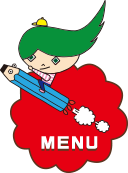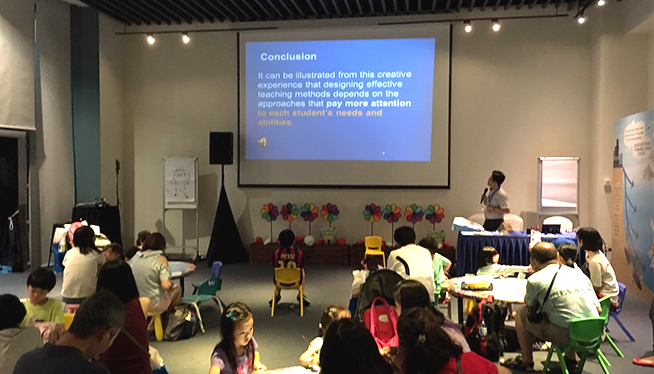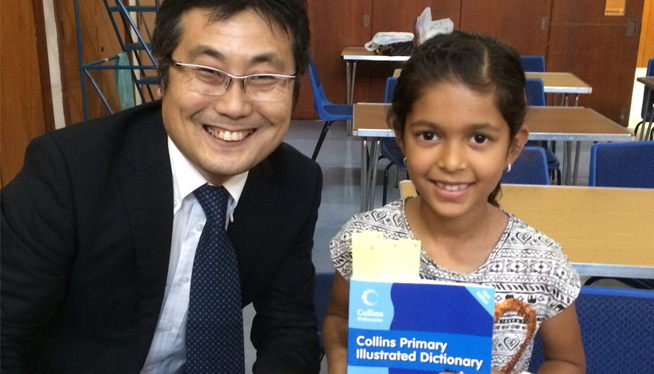About KOKOLAB MENU

The desire to teach children proper word usage, to help them expand their vocabularies, and to instill in them a love of learning?
these were our motivations for founding the Kodomo-Kotoba Laboratory, or KOKOLAB for short, as a not-for-profit organization (NPO) in 2014.
We began by dedicating ourselves to promoting adoption of the “jishobiki” study method, which has already compiled a record of numerous successes over a great many years.
We are also building on these successes through a variety of other activities aimed at helping children “grow their potential”.


- We will nurture children who can express themselves effectively in their own words.
- We will nurture children who recognize their responsibility to pass proper usage on to the next generation.
- We will nurture children who know how to continue learning on their own.
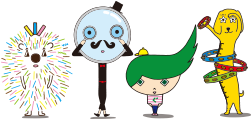

KOKOLAB wishes to help children become correct users of language, as well as to spark a conscious effort among all people to use language correctly.
We want to instill in children the sense that they are language ambassadors to the next generation.
Our hope is for as many children as possible to grow up with a command of correct usage that allows them to express their ideas clearly and precisely in their own words.
The “jishobiki” study method is designed not only to expand children’s vocabularies, but to nurture in them a broad-ranging hunger to learn for themselves.
The foundation of academic ability is in learning how to learn, and in internalizing those skills to enable continuous learning under one’s own power.
The person who has acquired these skills is equipped to deal effectively and responsibly with whatever may come later in life.
KOKOLAB’s goal is to set as many children as possible on the path to becoming just such a person.
About "Jishobiki" MENU

“Read the dictionary and bookmark the words you know.” This expresses the essence of the highly acclaimed study method born in Japan.
Many Japanese elementary schools today have adopted “Jishobiki” as a fruitful new method for developing young students’ language skills as well as for heightening their desire to learn.
Children are taught to read their dictionaries like books, and when they come to a word they already know, to write the word on a sticky label that can be attached to the page.
The unique study method was developed by Dr. Keisuke Fukaya in the 1990s.
More recently it has been introduced at schools in England and Singapore and is garnering attention as a highly effective educational technique.


- Gather your dictionary, a pen, and an ample supply of sticky labels.
- Number the labels before you begin.
- Begin reading your dictionary. Start on page 1―or anywhere else you want!
- When you find a headword you know, write the word on a label and stick it to the page.
- Read through all the different meanings of the word. Then read them again out loud.

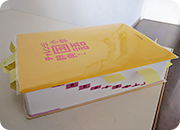
Ben Piper's Jisho Biki Journal / Reflections
(Prelude)
--Haven’t opened the dictionary yet. Wondering how well this approach works. How many post-its will I go through? How heavy will my dictionary become? Do I even like the idea of cluttering my dictionary with lots of post-it notes?

Keisuke Fukaya
Keisuke Fukaya (1965-), Ph.D, is a professor of contemporary education at Chubu University as well as a visiting scholar in the School of Oriental & Africa Studies (SOAS) at the University of London.
He previously served as principal of Ritsumeikan Primary School.
He developed the “jishobiki” (“dictionary bookmarking”) method of study in which children are encouraged to read their dictionaries and bookmark the words they know with sticky labels as a way of promoting the joy of learning.
Publications he has authored or collaborated on include Nanasaikara jisho wo hiite atama o kitaeru (Building Brains with the Dictionary from Age Seven), Reikai gakushu ruigo jiten (Learner’s Dictionary of Synonyms), Fukaya-shiki jisho, zukan katsuyo-jutsu (The Fukaya Guide to Using Dictionaries and Illustrated References), and Reikai gakushu kokugo jiten, dai-juppan (The Learner’s Dictionary of Japanese, 10th Edition)
Send us a message to let us know how we can help you.
Red is a required item.
